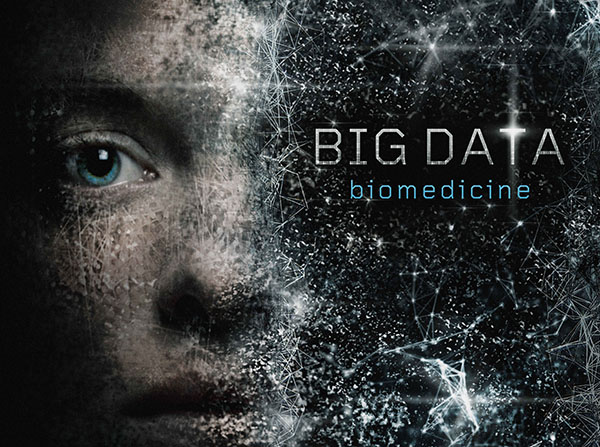
This 22-minute film aims to raise public awareness about how big data is having an effect on the future of medicine.
Sharing personal data in secure networks can lead to new ways of treating diseases, researchers say
If more people were willing to share their health data on mobile devices, scientists could organize the gaggle of information into shared databases and perhaps bring about the next era of medical breakthroughs, researchers said in a social change film.
The curation and analysis of terabytes of health data may enable David B. Agus, a professor of medicine at the Keck School of Medicine of USC, to tell his patients that hope exists.
“The new hope in the room is not in medicine, but it’s in big data,” Agus, director of the Lawrence J. Ellison Institute for Transformative Medicine of USC, said in the film. “The real revelation in data is we can start to categorize cancer. So instead of just lumping it by where it came from, we’re going to start to personalize how we understand, how we categorize and how we treat disease.
“Two or three times I week, I look someone in the eye and say I have no more drugs to treat your disease, and I don’t want to do that anymore.”
Big Data: Biomedicine is a 22-minute film that aims to raise public awareness about how big data is having an effect on the future of medicine. The film illustrates how data is fast becoming a crucial component in treating patients and saving lives.
The film, available on YouTube, was written and produced by Michael Taylor, a professor at the USC School of Cinematic Arts and executive director of the Media Institute for Social Change.
“Almost all of us today have computers in our pockets,” Taylor said. “If we can get into the habit of using them to collect our personal health data, it will get us much closer to having a more personalized relationship with our doctor and ultimately benefit all of us.”
The second half of the two-part film will be posted on YouTube in the spring, Taylor said.
The USC Stevens Neuroimaging and Informatics Institute is the world’s largest brain data repository, currently holding 2,867 terabytes of information from every continent except Antarctica.
“We can’t modify one’s age; we can’t modify one’s genetics,” Judy Pa, an assistant professor of neurology at the USC Stevens Neuroimaging Informatics Institute, said in the film. “But we know that there are other factors about the way one lives that can be changed. Let’s see if we can get these on a better trajectory for your future.”
Recommendations of healthy and unhealthy behaviors are made based on the available science at the time. Big data injects loads of new information into the system, potentially blowing up scientists’ previous misconceptions, said John Van Horn, an associate professor of neurology at the Keck School of Medicine.
“This is where new science gets done,” Van Horn said in the film, referring to the USC Stevens Neuroimaging and Informatics Institute. “This is where cures will be found.”
By Zen Vuong